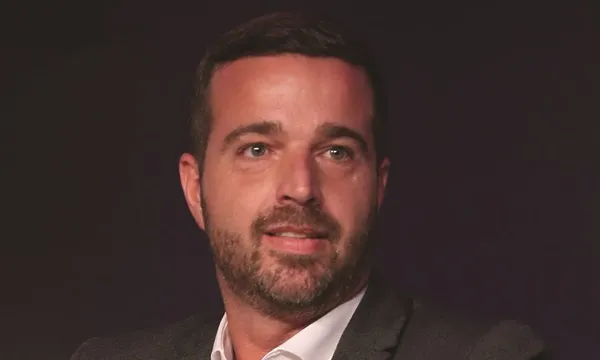
UNL bridges gaps for under-addressed locations
The mapping tech startup gives places a unique universal address to make them digitally fit.
Current addressing standards remain limited and are even deemed unfit for the digital economy. What’s more, it turns out that a staggering 75% of the world is poorly addressed, which leaves 4 billion people globally without a physical address. As it remains this way, individuals and locations without a reliable address remain underserved and excluded from economic traffic as they get restricted from accessing essential services, such as emergency help, postal services or even identity.
Solving this, mapping-technology startup UNL has created a smart platform for navigation and location-based services that can give anyone and anywhere a unique, universal address.
“To every location, we add a smart layer to make places programmable—building the Internet of Places—powering hyperlocal applications from last-mile delivery to smart city applications. It’s about economic impact and unlocking places to become the gravity points for location-based services,” Mihaela Georgieva, CCO of UNL, told Singapore Business Review
The platform is identified as an infrastructural technology that can divide parts of the world into a 3D grid of ‘micro-cells’. To every ‘cell’, UNL then assigns a unique universal location ID, which Georgieva describes as similar to domain names. From there, users and businesses can claim and customise locations, give a custom name, attach and manage metadata, optimise first- and last-mile navigation.
“To this, we add a smart layer to make locations programmable and transactional, turning any location into a point of sale, point of delivery, point of payment and point of experience,” Georgieva added.
Currently, they are working on their delivery platform which includes features such as last-mile optimisation and customisation, smart route planning and fleet management, indoor navigation, and access management.
Apart from this, UNL also made the Human Care app, designated to curb the spread of the coronavirus through location and data. Georgieva said that it is a “tech4good” solution under the Human Unlimited Foundation and is powered by UNL and Netherlands-based mapping solutions provider HERE Technologies.
UNL secured $2.78m (US$2m) in a seed funding last March, led by Singapore-based deeptech VC fund elev8.vc. It was also participated by HERE Technologies, SGInnovate, US-based SOSV, Mobile Only Accelerator (MOX) and Venturerock. The funds will be for developing the Internet of Places core infrastructure.
“Location Based Services (LBS)—the provision of goods and services based on geographic location—are growing rapidly. Nowhere is this better evidenced than the stunning growth of urban food delivery apps. However, LBS is still a nascent industry. Its potential extends far beyond—from hyper-personalised services to smart-nation programmes,” said Aditya Mathur, managing director of elev8.vc. “UNL’s platform will enhance existing offerings and will support hyper-localised applications we haven’t considered yet.”
Caption: Xander van der Heijden, the founder of UNL.



![SBR 5 Lorem Ipsum News 2 [8 May]](https://cmg-qa.s3.ap-southeast-1.amazonaws.com/s3fs-public/styles/exclusive_featured_article/public/2025-05/a_hand_pointing_to_a_futuristic_technology_5b87c9d0e3_3.png.webp?itok=M3Hf-9XR)
![SBR 4 Lorem Ipsum [8 May Top Stories]](https://cmg-qa.s3.ap-southeast-1.amazonaws.com/s3fs-public/styles/exclusive_featured_article/public/2025-05/a_hand_pointing_to_a_futuristic_technology_5b87c9d0e3_2.png.webp?itok=2m5Wl0MX)


![Exclusive three SBR 12 Lorem Ipsum [8 May]](https://cmg-qa.s3.ap-southeast-1.amazonaws.com/s3fs-public/styles/exclusive_featured_article/public/2025-05/a_hand_pointing_to_a_futuristic_technology_5b87c9d0e3_11.png.webp?itok=8kn_UIfA)
![SBR 3 Lorem Ipsum [ Exclusive 2]](https://cmg-qa.s3.ap-southeast-1.amazonaws.com/s3fs-public/styles/exclusive_featured_article/public/2025-05/a_hand_pointing_to_a_futuristic_technology_5b87c9d0e3_1.png.webp?itok=YCyjLegJ)
![SBR 2 Lorem Ipsum [8 May]](https://cmg-qa.s3.ap-southeast-1.amazonaws.com/s3fs-public/styles/exclusive_featured_article/public/2025-05/a_hand_pointing_to_a_futuristic_technology_5b87c9d0e3_0.png.webp?itok=_cKD-29o)

![Video [Event News]](https://cmg-qa.s3.ap-southeast-1.amazonaws.com/s3fs-public/styles/event_news_featured_article/public/2025-05/screenshot-2025-05-08-at-4.58.53-pm_0.png.webp?itok=Kud35sMs)
![Event News SBR 9 Lorem Ipsum [8 may]](https://cmg-qa.s3.ap-southeast-1.amazonaws.com/s3fs-public/styles/event_news_thumbnail/public/2025-05/a_hand_pointing_to_a_futuristic_technology_5b87c9d0e3_8.png.webp?itok=DTh_dbYp)
![Event News SBR 9 Lorem Ipsum [8 May]](https://cmg-qa.s3.ap-southeast-1.amazonaws.com/s3fs-public/styles/event_news_thumbnail/public/2025-05/a_hand_pointing_to_a_futuristic_technology_5b87c9d0e3_7.png.webp?itok=vzDAzb6V)
![Event News SBR 8 Lorem Ipsum [8 May]](https://cmg-qa.s3.ap-southeast-1.amazonaws.com/s3fs-public/styles/event_news_thumbnail/public/2025-05/a_hand_pointing_to_a_futuristic_technology_5b87c9d0e3_6.png.webp?itok=jvHFc4P6)
![Video [Event News]](https://cmg-qa.s3.ap-southeast-1.amazonaws.com/s3fs-public/styles/video_thumbnail/public/2025-05/screenshot-2025-05-08-at-4.58.53-pm_0.png.webp?itok=yZnI0YBb)
![Video 1 SBR [8 May]](https://cmg-qa.s3.ap-southeast-1.amazonaws.com/s3fs-public/styles/video_thumbnail/public/2025-05/screenshot-2025-05-08-at-4.58.53-pm.png.webp?itok=9AAeRz_k)

 Advertise
Advertise

